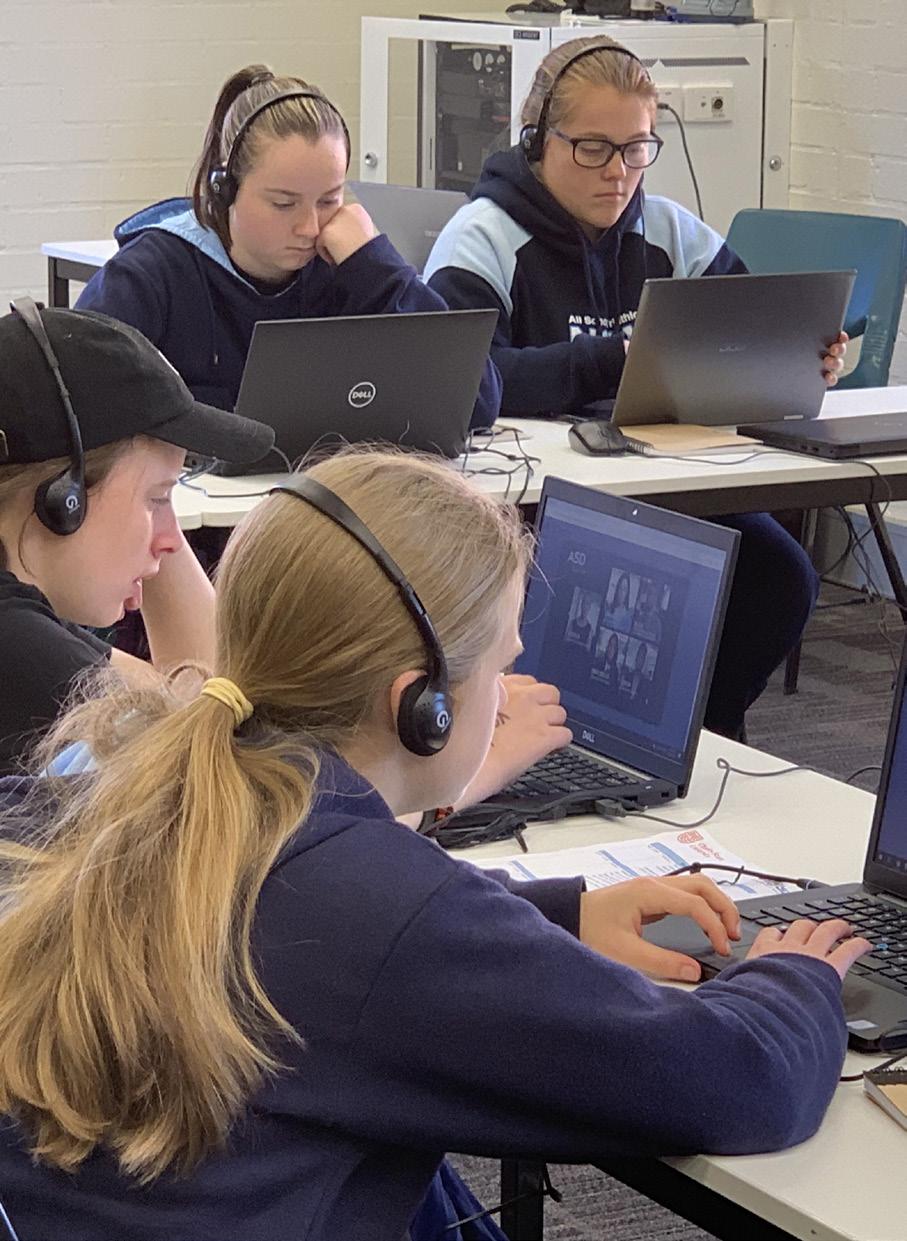
4 minute read
Women in cyberspace: Dad on a mission
For this academic, the push to encourage more women into male-dominated fields of science, technology, engineering and mathematics (STEM) is personal.
Professor Tanveer Zia’s motivation to create opportunities for women in cyber security began at home. Associate Head of the School of Computing and Mathematics, Tanveer is not only a renowned educator and advisor. He is also the father of three daughters. When he discovered the low number of women in cyber security roles in the United States while there on sabbatical, he began investigating the reasons. “I became curious as to why that was happening and found out that in Australia, we were also struggling to enrol women. In Australia, the participation of women in STEM overall is 20 per cent and in cyber security specifically it is 11 per cent. Then only one per cent of female cyber security workers are in senior management positions. To increase these staggeringly low rates, Tanveer secured nearly $250,000 in funding and developed the Girls in Cyber Security Awareness (GiCSA) program. Tanveer’s daughters Fatima, Zainab and Sarah played an integral role in developing the program, inspiring his mission, providing feedback around the dinner table, designing the logo and becoming ambassadors for the program at school. After Tanveer put the course together, contacting high schools across Charles Sturt University’s footprint and doing many media interviews to build momentum, word of the program started to spread. Kicking off in 2018, the program included a series of threeday cyber security awareness and training workshops in campus locations and participation in an online cyber security challenge. The top students also had the chance to participate in a leadership and entrepreneurship workshop and interact with successful women in cyber security, including Technical Director in Emerging Technology and Engineering with the Australian Cyber Security Centre Kylie McDevitt, information security expert Shanna Daly, and security architect with Microsoft Sarah Young. In total, 137 female students in Years 9 and 10 from across the country took part in the program, building their skills and their confidence in cyber security. Around two-thirds of participants indicated they want to go into cyber security when they finish high school.
Kim Collins is one such student. Currently in Year 11 at St Paul’s College Kempsey, Kim had a small interest in coding but said the GiCSA program was her introduction to the world of cyber security. “We covered a lot of content in the workshop, including combating cyber threats, understanding a hacker’s mindset, internet browser security, digital forensics and cyber security careers.

“Being in a room full of female students took a lot of pressure off. After spending two years in a male-dominated iSTEM class, I knew how easy it was to have your voice lost. In this environment, everyone was heard, and we all had a fair go. “GiCSA wasn't just about cybersecurity and IT, the final stage was very business inclined. It taught me a lot, and it took me out of my comfort zone and really pushed my limits. A year ago, I never would have imagined myself in this position with the amount of confidence I've gained from this experience. “Empowering young women to push the stereotypes is of such great importance. Women can achieve to the same level and even higher than men if they're given the right encouragement and support, and I’m now definitely considering pursuing a future in cyber security.” Tamara Baker feels the same way. In Year 10 at Melbourne Girls Grammar School, Tamara has a passion for IT and is an ambassador for Code Like a Girl, a social enterprise providing girls and women with the confidence and tools to enter and flourish in the world of coding. “The workshop I attended in Griffith was absolutely amazing. It built on my knowledge, and it completely opened me up to different and new pathways, especially as I'm looking into what universities I want to go to. “I’m conscious that IT is a male-dominated industry. When I was first learning how to code, a lot of the opportunities were based around gaming, which brings in a lot of boys to the workshops. Often, I was the only female in the course, which can be isolating and really intimidating. “So, I think the workshops like GiCSA, are really, really, really important because they give you an environment where you can foster your knowledge, make friends and have a support network.” The GiCSA program has been nominated for and won multiple awards, including a 2019 Women in Security Award for the Best Higher Education Program for Young Ladies in Security and a second runner-up award in the 2020 Asia-Pacific Triple E Awards (Higher Education in the Community Engagement Initiative of the Year category) from 300 entries. But for Tanveer, the accolades are a small part of the success of the program. “The program challenged stereotypes and provided insights into the work flexibilities in cyber careers. It equipped the girls in how to maintain a safe online presence and has inspired some of the students to pursue a career in cyber security. I feel a sense of accomplishment that through this program I have made an impact on their future.” More than that, Tanveer’s daughters are also pursuing careers in STEM. “I don’t know if their involvement with the GiCSA program influenced their career paths or if they have naturally developed their interests, but all three are working or studying in the STEM field now and I’m proud of what they are doing.”










